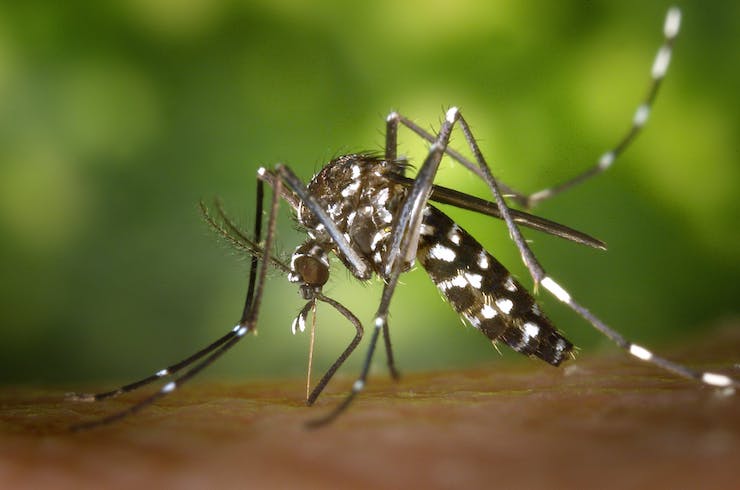Using Drones to Combat Mosquito Born Illnesses

It’s hard to believe that a creature about the size of your pinky nail, a mosquito, is the most deadly creature in the world. The World Health Organization announced that nearly 7250,000 people a year die from diseases carried by mosquitoes. Of these diseases, every year 200 million people get malaria leading to the deaths of an estimated 600,000 individuals. Treatment of malaria is often difficult as symptoms often don’t manifest until two weeks after being bitten. Also, because symptoms are similar to those associated with the flu, malaria is sometimes misdiagnosed as a common ailment. What makes mosquito bone diseases so much more intense is that mosquitoes can be found in almost any part of the world and their numbers during peak seasons can outnumber every other creature in the area, besides ants and termites.
Prevention of malaria is a tricky process. For the most part humans can avoid bites by using insect repellents, mosquito nets, and draining still bodies of water where mosquitoes breed. For large breeding grounds the spraying of insecticides is the go to method to stop the spreading of malaria. On the island of Zanzibar off the coast of Tanzania a new method to control mosquito populations is being tested. Drones are being used to spread insecticides over rice fields to help save lives.
Rice is the third highest produced crop in the world, and one of the most widely consumed foods worldwide. Rice are the seeds from a type of grass. Once the grass starts to sprout, the field it is planted in is flooded. This prevents weeds from growing among the desired plants and also keeps crop destroying vermin and pests away. However, it creates a perfect breeding ground for infectious mosquitoes. Farmers treat rice paddies with insecticides, but it is still an ongoing battle. Some rice fields take up hundreds of hectares of land that could take weeks to spray with insecticides manually before needing to start the process all over again. The Zanzibar Malaria Elimination Program is a government initiative that hopes to eliminate malaria from the island by the year 2023. For the program to be successful the government needs to find an effective way of stopping malaria at it’s source which is why they have turned to drones for assistance.
A job that would take workers far to long to get ahead of the mosquito population can be quickly and easily completed with a drone. To use a helicopter or crop duster plane to spread the pesticides would be to expensive for this operation as well. Members of the Dutch Malaria Foundation, a charitable organization that aims to combat malaria, has begun leading the drone program in Zanzibar by training students from the State University of Zanzibar how to operate the drones and apply the chemicals to the rice paddies. Aiding in the training process are members from Chinese drone giant DJI who has also provided the teams with the drones needed. The drone being used for this mission is DJI’s first agricultural drone the Agras MG-1.
The Agras MG-1 is an octocopter designed to carry a liquid payload and deliver precise application of the chemical while still being easy to use. As stated on DJI’s website, “The MG-1 ‘s powerful propulsion system allows the aircraft to carry up to 10 kg liquid payloads, including pesticides and fertilizers. The combination of speed and power means that an area of 4,000-6,000 m² can be covered in just 10 minutes, or 40 to 60 times faster than manual spraying operations. The intelligent spraying system automatically adjusts its spray according to the flying speed so that an even spray is always applied. This way, the amount of pesticide or fertilizer is precisely regulated to avoid pollution and economize operations.” The pesticide that this drone will be spraying is called Aquitan.
Aquitan is a liquid that when sprayed over the rice paddies will create a gel like barrier on the top of the water. This barrier will suffocate the mosquito larvae in the water while still allowing the plants to grow to their full potential. This chemical has also been proven to be safe to non-target organisms, is non-toxic, and biodegradable. All of these are factors that are extremely important to all parties involved in this mission. The goal is to eradicate mosquito borne diseases in an environmentally sound and sustainable manner
Armed with the proper equipment, a drone, and the right chemicals, Aquitan, the Zanzibar Malaria Elimination Program may actually be able to reach their 2023 goal. Bart Knols of the Dutch Malaria Foundation is running the drone program in Zanzibar. He is quite optimistic of this mission. As he said, “We are getting to the bottom of it as we will spray the breeding grounds of mosquitoes.”
|